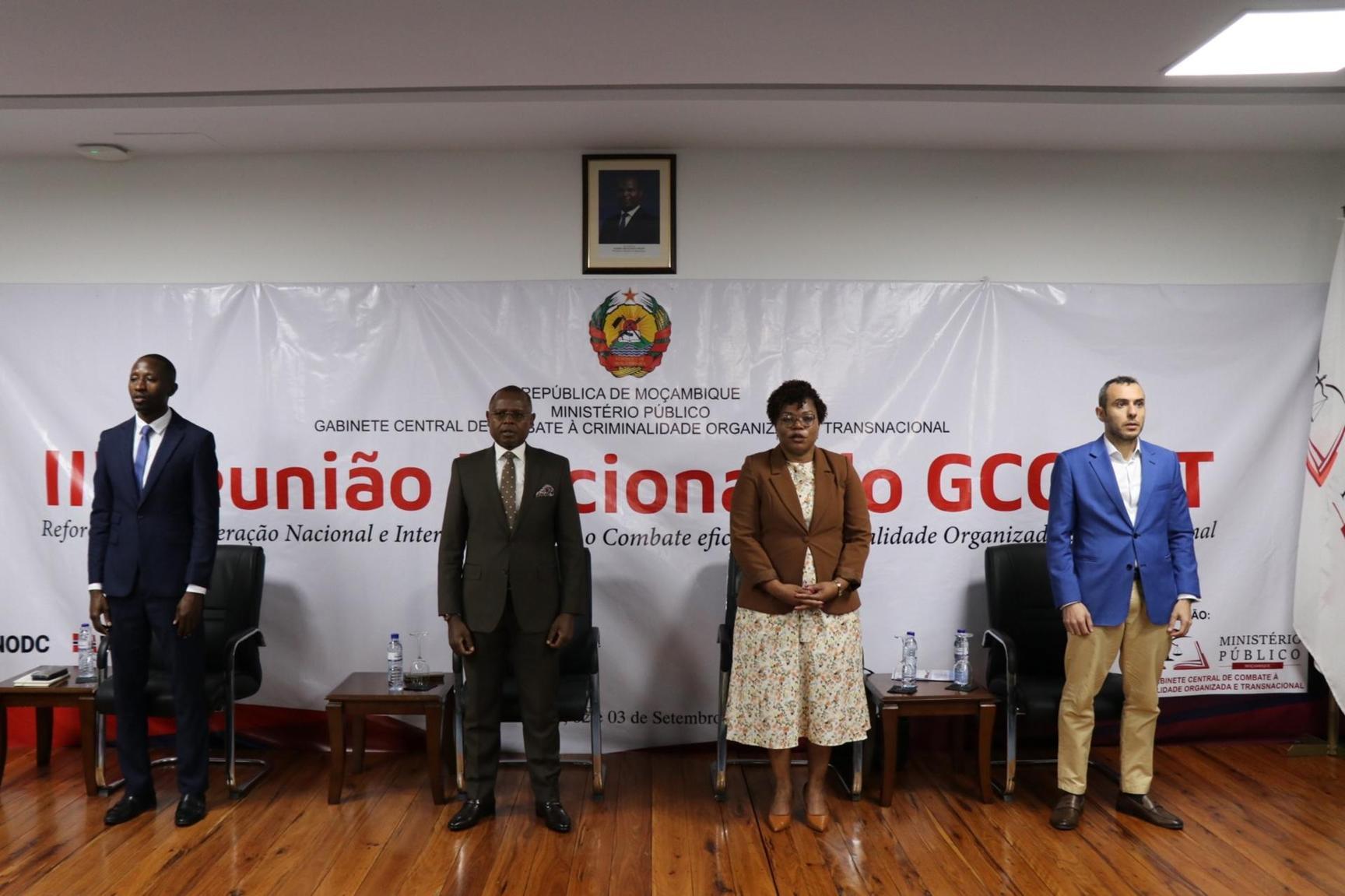Africa-Press – Mozambique. Mozambican Attorney-General Americo Letela has called for “a strategic and multi-sector response” to the increased sophistication of organised crime.
Speaking on Tuesday at the opening of a national meeting of the Central Office for the Fight against Organised and Transnational Crime (GCCCOT), held in the tourist resort of Ponta do Ouro, in the southernmost district of Matutuine, Letela pointed in particular to the increase in drug trafficking along Mozambique’s lengthy and unprotected coastline, the use of digital technology for financial crime, and the links of criminal networks to armed conflicts. Eliminating these phenomena was an urgent task, he stressed.
“We are called upon, not only to reflect, but to act with determination and responsibility”, declared Letela.
Mozambicans, he said, expect that the work of the Attorney-General’s Office (PGR) will lead to the effective sentencing of criminals, the recovery of stolen assets, and the eradication of criminal networks.
“Society is placing in us the expectation that we will be able to contribute towards a more effective and transparent justice system, one that is more resilient to the threats from organised crime”, he added.
Organised, transnational crime, said Letela, weakens the rule of law, corrodes the trust of citizens in institutions, compromises national security and obstructs development.
The meeting heard that, in the first six months of this year, the GCCCOT has recorded a significant increase in cases of money laundering. 108 cases were registered between January and June. The GCCCOT expects that, by the end of the year, it will have recorded more than the 190 cases registered in all of 2024.
GCCCOT spokesperson Armando Wilson recognised that this increase arises from the pressure the government is under to ensure that Mozambique is removed from the “grey list” of the Financial Action Task Force (FATF).
“Cooperation between the Public Prosecutor’s Office and other relevant bodies has allowed the numbers to rise”, said Wilson. In particular, “the commercial banks have increased their notifications of suspicious operations”.
The GCCCOT director. Amelia Machava, called for efficient mechanisms to ensure the rapid sharing of financial information.
“Terrorism and its financing clearly show that criminals surpass borders and that only with international cooperation can we neutralise their networks”, she said. “Kidnappings and other forms of organised crime require robust national cooperation involving the administration of justice, criminal investigation and the security bodies”.
Machava warned that no single organisation, no matter how skilled, can face the dynamics and complexity of organised crime on its own.
The “grey list”, officially known as “Jurisdictions under Increased Monitoring” includes countries identified by the FATF as having strategic deficiencies in their measures to counter money laundering and the financing of terrorism.
Countries on this list are subject to increased monitoring and scrutiny by the FATF. The list is intended to serve as a warning to the countries concerned to improve their performance and comply with international standards.
The FATF also has a “black list” of countries. In these cases, other jurisdictions can be called upon to apply counter-measures to protect the international financial system from the money laundering or terrorist financing emanating from the blacklisted countries. Currently, only three countries are on the black list – North Korea, Iran and Myanmar.
For More News And Analysis About Mozambique Follow Africa-Press






